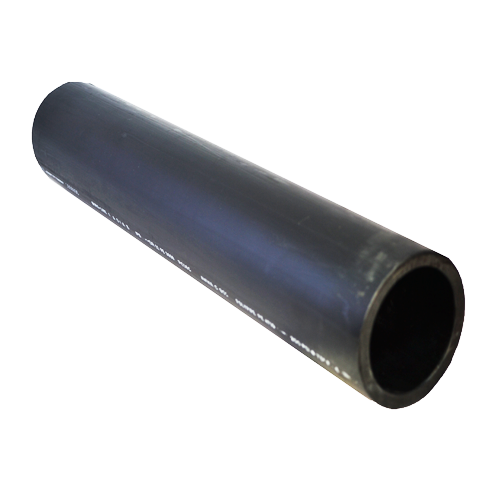Pipe Manufacturing Midland TX: Process Explained
Wiki Article
Understanding the Key Advantages of HDPE Pipe for Water and Wastewater Administration
Using HDPE pipeline in water and wastewater management offers various advantages that warrant factor to consider. Its remarkable sturdiness and lengthy life-span make it a preferred choice for several projects. Additionally, the material's resistance to rust and chemical damages enhances its integrity in different environments. The benefits expand past just long life and resistance. hdpe pipe suppliers Midland TX. Discovering its cost-effectiveness and ecological influence reveals also much more engaging reasons for its prevalent fostering in contemporary infrastructureOutstanding Durability and Durability

HDPE pipe attracts attention for its exceptional durability and long life, making it a favored option in water monitoring systems. Constructed from high-density polyethylene, these pipelines can endure substantial stress and stress, guaranteeing reputable performance in time. Their durable nature allows them to sustain severe environmental conditions, consisting of temperature changes and soil motions, which can create other products to stop working.
The life expectancy of HDPE pipes usually goes beyond half a century, giving a cost-efficient solution for districts and sectors alike. Additionally, the product's light-weight homes simplify installment, decreasing labor prices and durations. This longevity lessens the requirement for constant repair work or replacements, even more enhancing its economic charm.
In water management applications, the reliability of HDPE pipes indicates fewer interruptions and improved service connection, making them important to sustainable infrastructure advancement. The combination of durability and durability solidifies HDPE's function as a foundation in reliable water administration solutions.

Resistance to Corrosion and Chemical Damages
While several materials catch deterioration and chemical damage over time, HDPE pipelines display impressive resistance, making them perfect for various water monitoring applications. This resilience comes from the molecular structure of high-density polyethylene, which is inherently non-reactive and does not wear away like metals or degrade from exposure to severe chemicals. As a result, HDPE is highly reliable in atmospheres with hostile materials, such as wastewater systems that might have acids, bases, and natural solvents.
In addition, HDPE pipes can stand up to ecological aspects such as dirt acidity and saline problems, additionally enhancing their suitability for varied applications (Midland TX HDPE Pipe Fittings in Stock). Their capacity to preserve architectural integrity gradually lowers the threat of leakages and failures, which is crucial in making certain the safety and dependability of water distribution and wastewater monitoring systems. The resistance to corrosion and chemical damages markedly adds to the total effectiveness and longevity of HDPE piping options.
Cost-Effectiveness and Economic Advantages
When considering the economic ramifications of water monitoring systems, the cost-effectiveness of HDPE pipelines becomes obvious. These pipelines use reduced installation and upkeep prices contrasted to typical products like steel or concrete. Their light-weight nature streamlines transport and setup, resulting in minimized labor costs. In addition, HDPE pipelines exhibit a long lifespan, typically going beyond half a century, which equates to less substitutes and lasting savings.The resistance of HDPE to corrosion and chemical damage lessens the need for costly fixings and replacements. The pipelines additionally support effective water flow, lowering energy expenses linked with pumping systems. By minimizing leakages and water loss, HDPE pipes add to significant economic advantages for towns and sectors alike. In general, the first financial investment in HDPE piping can generate substantial monetary returns over the life-span of the water administration system, making it a sensible selection for sustainable framework development.
Ecological Sustainability and Decreased Impact

Versatility and Flexibility in Installment
Due to their distinct residential properties, HDPE pipes offer amazing adaptability and flexibility in setup, making them suitable for a variety of applications. Their light-weight nature permits easier handling and transport, minimizing labor costs and setup time. HDPE pipes can be curved and shaped to fit different surfaces and task requirements, which is particularly helpful in testing atmospheres.Furthermore, their resistance to rust and chemical damages allows for installation in diverse setups without the need for specialized safety finishings. The capacity to fuse joints develops a continual, leak-free system, improving the overall integrity and dependability of the installation. HDPE's versatility additionally suits ground activity, minimizing the danger of damages in locations prone to shifting soil. Generally, these features make HDPE pipes not only functional but likewise a preferred selection for water and wastewater administration systems.
Often Asked Questions
How Does HDPE Pipeline Contrast to PVC in Water Monitoring Applications?
HDPE pipe provides superior versatility, resistance to deterioration, and longevity compared to PVC. Its lighter weight assists in easier installment, while its long life-span decreases replacement costs, making HDPE a recommended option in water monitoring applications.What Is the Life Expectancy of HDPE Pipeline Under Common Conditions?
Under common conditions, HDPE pipelines can have a lifespan varying from 50 to 100 years. Their longevity and resistance to deterioration add to their lasting efficiency in numerous applications, making them a reliable choice for framework.Are HDPE Pipes Recyclable After Their Service Life?
Yes, HDPE pipes are recyclable here after their solution life. American Plastics HDPE Pipe for Oilfield. They can be refined and repurposed into brand-new products, significantly minimizing environmental effect and promoting sustainability within the industry, making them a green option for piping optionsWhat Is the Installment Process for HDPE Water Lines?
The setup process for HDPE pipelines includes site preparation, trenching, pipeline fusion or mechanical signing up with, backfilling, and pressure testing. Correct techniques guarantee a resilient and effective system for transferring water and wastewater efficiently.Can HDPE Piping Be Used for Both Drinkable and Non-Potable Water Systems?
Yes, HDPE pipes can be used for both potable and non-potable water systems. Their flexibility, resilience, and resistance to deterioration make them appropriate for different applications, guaranteeing risk-free and reliable transportation of water in different contexts.Report this wiki page